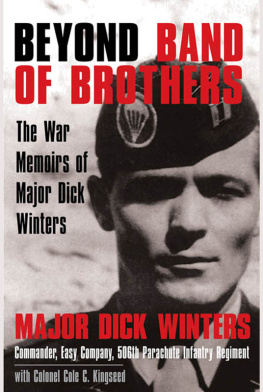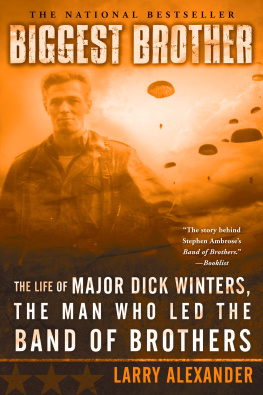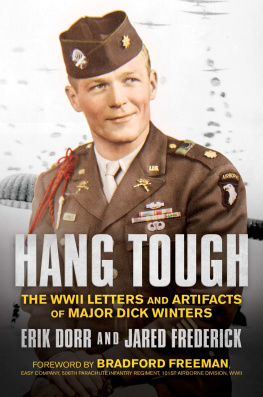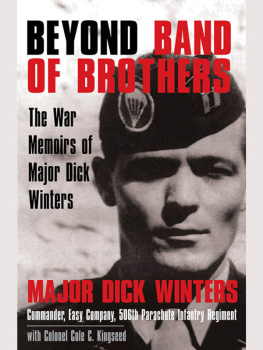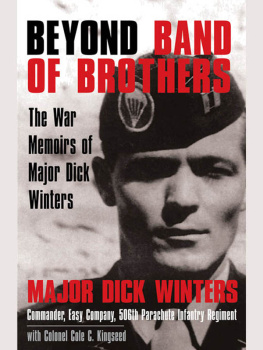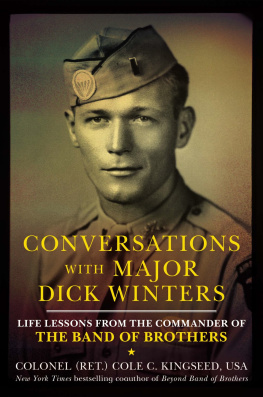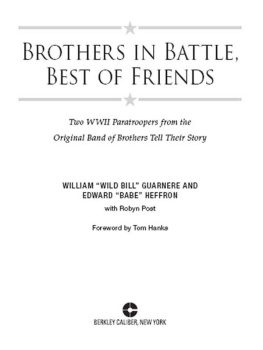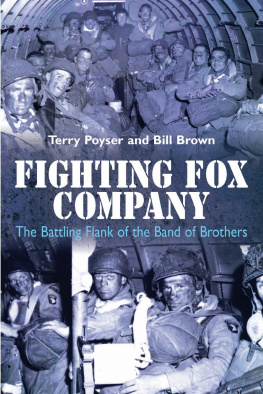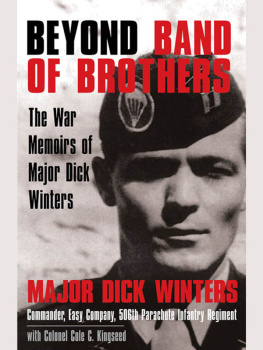Contents
THE BERKLEY PUBLISHING GROUP
Published by the Penguin Group
Penguin Group (USA) Inc.
375 Hudson Street, New York, New York 10014, USA
Penguin Group (Canada), 90 Eglinton Avenue East, Suite 700, Toronto, Ontario M4P 2Y3, Canada (a division of Pearson Penguin Canada Inc.)
Penguin Books Ltd., 80 Strand, London WC2R 0RL, England
Penguin Group Ireland, 25 St. Stephens Green, Dublin 2, Ireland (a division of Penguin Books Ltd.)
Penguin Group (Australia), 250 Camberwell Road, Camberwell, Victoria 3124, Australia (a division of Pearson Australia Group Pty. Ltd.)
Penguin Books India Pvt. Ltd., 11 Community Centre, Panchsheel Park, New Delhi-110 017, India
Penguin Group (NZ), cnr. Airborne and Rosedale Roads, Albany, Auckland 1310, New Zealand (a division of Pearson New Zealand Ltd.)
Penguin Books (South Africa) (Pty.) Ltd., 24 Sturdee Avenue, Rosebank, Johannesburg 2196, South Africa
Penguin Books Ltd., Registered Offices: 80 Strand, London WC2R 0RL, England
Copyright 2006 by Major Dick Winters and Brecourt Leadership Experience, Inc. Cover design by Steven Ferlauto.
Text design by Stacy Irwin.
All rights reserved.
No part of this book may be reproduced, scanned, or distributed in any printed or electronic form without permission. Please do not participate in or encourage piracy of copyrighted materials in violation of the authors rights. Purchase only authorized editions.
BERKLEY Caliber is a registered trademark of Penguin Group (USA) Inc.
Caliber and the C design are trademarks belonging to Penguin Group (USA) Inc.
First electronic edition: March 2006
ISBN 978-1-1012-0566-2
Making or distributing electronic copies of this book constitutes copyright infringement and could subject the infringer to criminal and civil liability.
For
Ethel
First, this is not a work of fiction. These are true stories that happened in World War II to real people, men I led, and soldiers I fought beside. Even now, I stay in touch with many who are still living these sixty years later.
Stephen Ambrose, in his book, called us a band of brothers. Yet in the way we took care of each other, protected each other, and laughed and cried together, we really were even closer than blood brothers. We were like twinswhat happened to one of us, happened to us all, and we all shared the consequences and the feelings.
After Ambrose finished the book, he wanted to clear his desk, and his floor, for the next book, the big one, D-Day: The Climactic Battle of World War II . His way of clearing was to send me a huge box containing all the memories of the men who had contributed for the writing of Band of Brothers . My home den thus became the repository for all these memories. It took me a whole winter to sort all the papers and add them to the records that I already had for the men. Ambrose had roughly put them in piles representing the chapters in which he used them, so I had a lot of sorting and reading to do to gather together the memories of each man.
As I read them, I came across so many good stories that for want of space had not been included in the book. I thought then, as I think now, that it was a shame that so many of them had remained untold. Since the book publication and especially after the HBO miniseries Band of Brothers, produced by Tom Hanks and Steven Spielberg, I have been deluged with letters from people with questions, people begging for more storiesboth more from me and from the men.
This book is the only way I know to reach all those many people, from all over the world, who have such a thirst to know more. Whether I read peoples letters or go out to speak, the cry is always, Tell us more! Tell us more! I cannot possibly write or speak to all these people, but one letter writer succinctly summarized the wide appeal of the men with whom I served and the message I wish to convey: Generals Eisenhower, Patton, and Montgomery, President Roosevelt, and Prime Minister Churchill were giants on a world stage. You and your men were different to me, though. You came from the cities, backgrounds, and places that I came from. You had some of the same problems and situations. Your triumph was one of character more than ability and talent. I do not mean to imply that you or your men lacked talent and ability, but I could identify with your talents and abilities. I will never be able to speak like Churchill or have the ambition of Patton, but I can have the quiet determination of Easy Company. I can be a leader; I can be loyal; I can be a good comrade. These are qualities that you and your men demonstrated under the harshest of conditions. Surely I can do the same in my normal life.
Another young man wrote from England and mentioned that he had no special links to World War II, no interesting family war stories, no relatives killed in heroic actions. Indeed his attachment to the conflict, however, was strong enough that one night he sat in tears watching the Band of Brothers documentary We Stand Alone Together. Attempting to express his gratitude to the men of Easy Company, he pondered, What is my attachment to men such as yourself, whom I have never met? Is it respect because you put your own life on the line to ensure younger people like me have the world we live in today? Is it awe that you could live from day to day watching friends being gunned down or blown apart and still get up the next day prepared to face the same horrors? Or perhaps, fascination at how you and your comrades were able to return to relative normality after the war, with the ghosts of the dead watching what you made of the life they were denied?
Age is creeping up and taking its toll, and as what war correspondent Ernie Pyle called the old fraternity of war enmeshes me one final time, I want to honor the men I served with by telling as best I can the untold stories. Many of these stories are from men who are no longer with us, and I can think of no better legacy for them and their families. Most important, I want to share my personal memories in the hope that my experience will serve as an example for present leaders and those of future generations who must make difficult decisions and put their lives on the line in the preservation of liberty.
Memoirs, by their very nature, are intensely personal. In combat, a soldier can only relate his memories of his field of fire. Consequently, accounts by the enlisted men and noncommissioned officers in general completely ignore the fact that the army does have a chain of command and that the chain of command usually works. Noncommissioned officers usually ignore the fact that the army has lieutenants. On occasion a company commander might be mentioned; on rare occasions, a battalion commander. But most memoirs never mention the existence of a battalion, regimental, or divisional staff. Usually the men seem to communicate only with the regimental commander.
While assembling my thoughts, I have, at all times, tried to avoid being guilty of the above tendencies. My reminiscences are based on a combat diary I maintained and the letters I sent over the course of the war. I have crosschecked the factual records with contemporary operational reports. Although I shared many of these recollections with Stephen Ambrose, these memoirs contain many unpublished sources. It is my earnest hope that these memoirs will assist each of you to find your personal peace and solitude in a turbulent world.
The takeoff occurred on schedule, nice and smooth. Usually on these flights, everybody went to sleep, but tonight I forced myself to stay awake so Id be able to think and react quickly, but those airsick pills seemed to slow down my emotions. Private Hogan tried to get a song going after a while. A few of us joined in, but our singing was soon lost in the roar of the motors. I fell to saying a last prayer. It was a long, hard sincere prayer that never really ended, for I continued to think and pray the rest of the ride. When we hit the English Channel, it was really a beautiful sight, but I just couldnt appreciate its full beauty at this time.
Next page
